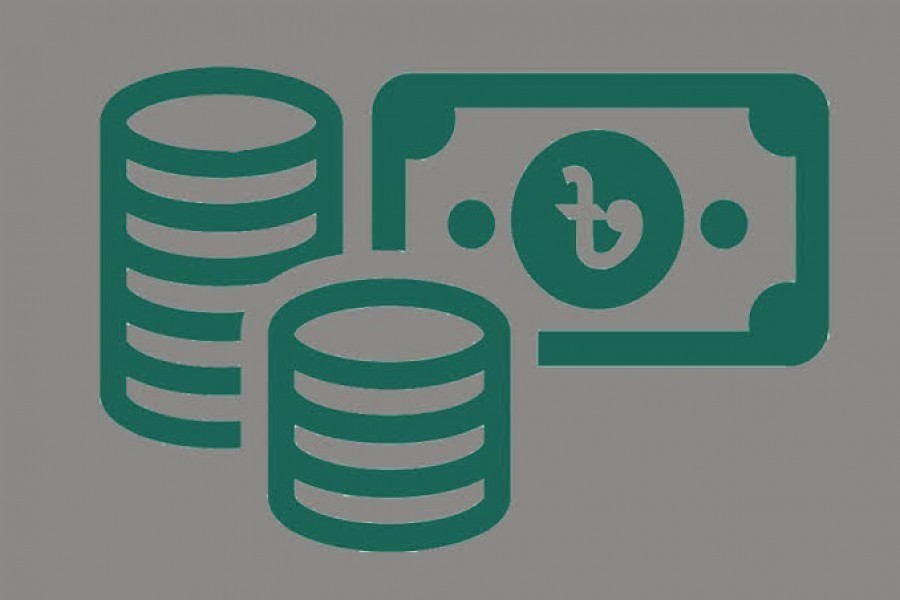It is no wonder foreign loans are now flowing into Bangladesh in an increased volume. The government is now borrowing more than before to bankroll a number of large infrastructure development projects. Moreover, increased foreign borrowing has become a necessity since the local resources coming from both tax and non-tax sources are not enough to meet the requirement.
According to CPD (centre for policy dialogue) estimate, foreign funding now meets nearly 37 per cent of the country's annual development programme (ADP).
There was a time when the share of foreign funds in the execution of country's development projects was rather overwhelmingly large, particularly during the 1980s.
Over time, the size of the ADPs has grown bigger---many, however, tend to question the ability of the relevant government agencies to execute such 'bloated' ADPs.
The volume of both tax and non-tax revenues mobilised by the government has also gone up steadily. But the increase has not been in commensurate with the resources needed for execution of the ADPs that have loaded with an increased number of cost-intensive 'mega' projects.
Obviously, the government does need to borrow more from local as well as external sources under the prevailing circumstances. But it has to maintain certain limit as far as borrowing from the domestic sources, including banks, is concerned.
In such a situation, soft external loans are most preferred. As a least developed country (LDC) Bangladesh used to receive substantial volume of such loans, particularly from the multilateral lenders and Japan International Cooperation Agency (JICA). But the availability of soft loans is becoming increasingly difficult, thanks to Bangladesh's elevation to a lower-middle income country status.
Even the multilateral lenders like the World Bank and the Asian Development Bank are now offering funds that are no longer soft and do carry higher rates of interest. Yet Bangladesh has reasons to welcome such loans since other sources of funding are far more expensive.
However, the government has opted for a few hard-term suppliers' credit to bankroll a good number of 'mega' development projects. Multilateral lenders are not that interested to make available funds for such projects. Only the JICA has offered soft loans for a number of large infrastructure projects.
Things would be even more difficult when Bangladesh is elevated to the status of an upper middle income country. Loan conditions in the case of international lending institutions would be even tougher and trade benefits curtailed further.
The private think-tank Centre for Policy Dialogue (CPD) the other day while releasing this year's UNCTAD report cautioned about the trouble Bangladesh would be facing while servicing its debts. It advised the government to proceed with caution while securing foreign loans. The CPD said like many other least developing countries (LDCs) the public debt, both domestic and external, of Bangladesh has been rising alarmingly in recent years. Dr. Debapriya Bhattachariya, a distinguished fellow at the CPD, felt that the country should try its best to procure low-cost loans and avoid the hard-term ones.
A report published in the Financial Express on Sunday last only proved the CPD' observation right. The FE report said Bangladesh' external debt repayment in the first quarter of the current financial year (2019-20) was 24 per cent higher than that of the same period of the last fiscal.
The debt-servicing, according to the report, has gone up mainly because of the payments made against the loans received for a number of ongoing mega projects, including the Rooppur nuclear power plant, metro rail and Matarbari Power plant.
What is more worrying is that the size of debt repayments would grow even bigger in the coming days. Such repayments against an increased number of large projects are expected to be due for payment.
The government reportedly expects to receive $8.5 billion more this fiscal as development assistance.
While the government is found eager to get foreign funds for development projects, it is not that serious in utilising the same efficiently. The lack of seriousness has left the aid pipeline chocked up with unutilised project assistance worth about US$ 25 billion.
What is however important is that the country needs continuous and sufficient foreign fund to support its development activities. The government's ability to mop up enough domestic resources remains limited notwithstanding the fact that the domestic revenue generation potential is substantial.
Moreover, a part of the domestic resources regularly flows out of the country through illicit routes and the government has not been able to plug the holes. Thus, taking advantage of inactions on the part of the government, funds, equivalent to 36 per cent of the total tax revenue generated in 2015, was taken out of the country using illegal routes.
No country can afford low revenue generation, flight of substantial volume of capital and also high-cost borrowing. Together all these, naturally, do put the economy in serious difficulty. Even the most skilful of the finance ministers would find it pretty hard to troubleshoot.


